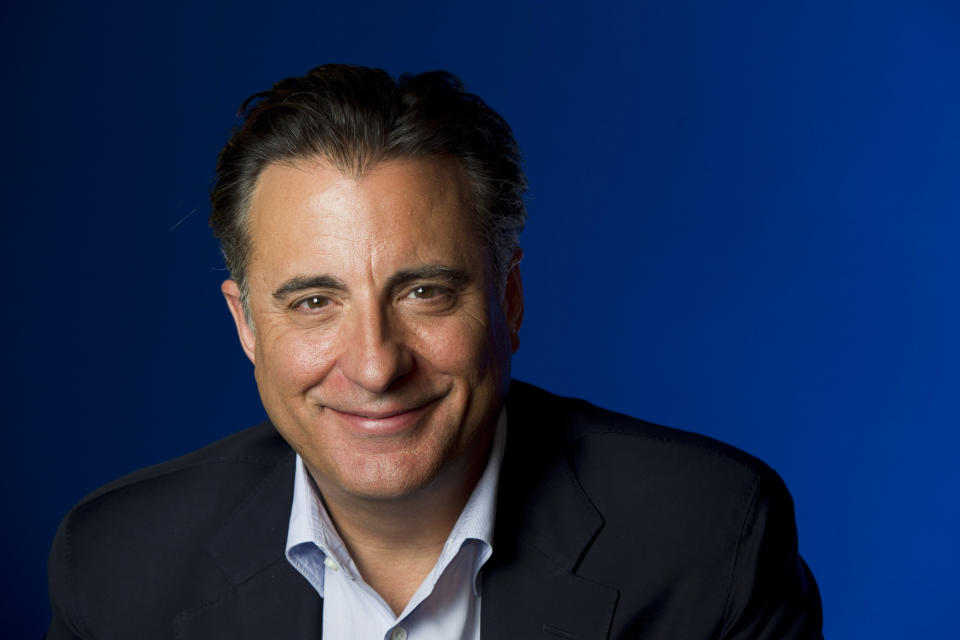Andy Garcia talks about 'Greater Glory'
NEW YORK (AP) — Andy Garcia can't understand why an episode of Mexican history as bloody as the Cristero War is barely known outside Mexico or even within the country.
That curiosity was part of the reason why he accepted the role of General Enrique Gorostieta in "For Greater Glory," a film the Cuban actor compares to epics like "How the West Was Won," ''Doctor Zhivago" or "Lawrence of Arabia."
"About 90,000 people died in three years (1926-1929). There was torture, priests being hung from telegraph poles. It was a very ugly moment in Mexican history," Garcia says of the conflict set off by the government's persecution of Roman Catholics. "The curious thing was I didn't know anything about it ... And when I started to ask some Mexican friends ... they didn't know anything about it."
In the film, which opens Friday in the U.S. after its debut in Mexico, Garcia plays an atheist and retired decorated general who accepts an offer to lead the National League for the Defense of Religious Liberty in the war. He doesn't share their religious fervor, but he does believe in the basic right of freedom.
Garcia says he was intrigued by "For Greater Glory" from the moment director Dean Wright and producer Pablo Jose Barroso gave him the script and the book "La Cristiada," by French historian and columnist Jean Meyer, who lives in Mexico.
With a stellar cast that includes Eva Longoria as Gorostieta's wife and Ruben Blades as President Plutarco Elias Calles, "For Greater Glory" also stars Peter O'Toole — "Lawrence of Arabia" himself— as Father Christopher.
___
The Associated Press: So, from being fascinated by the story to actually filming the movie there was only one step?
Garcia: It was easy to commit to do this movie because, aside from the curious fact that people don't know the story, or maybe that they don't want people to talk about this, the script, the concept of the film, was extremely classical ... and I knew it was going to be a beautiful adventure.
AP: The film's historical situation can be compared to the religious ban in Cuba when Fidel Castro took power. As a Cuban-American Catholic, how do you see this parallel?
Garcia: It was similar to what happened in Cuba. When Fidel Castro took power he did abolish all religion ... The only religion was a "Papa Fidel" kind-of-thing. So there is a parallel there that one could sort of tap into emotionally. But that wasn't the reason to do the movie ... This is a universal theme about absolute freedom and when I looked at the movie, first and foremost I said as a filmmaker, as an actor, how was the quality of the material, the scope of the story, what is it gonna look like.
AP: There's a scene in the movie of you and Ruben Blades together that was not in the original script. I understand you two wrote it. What was it like to work with Ruben?
Garcia: When he got to Mexico, we had dinner that night. We talked about the story, what we thought was missing, and Ruben says, "But we must have a scene together!" And I said, "Actually I think that will be a good idea. The concept of these two leaders coming together and exploring the thematic of the movie could be very interesting." So we worked on the scene, we wrote it, and we presented it to the producer and the director and they liked it and we carved out a little moment to shoot the scene. And I think it is one of the most important scenes in the film.
AP: This drama takes place in the 1920s but its theme of freedom remains current and is universal. What do you expect the audience to take away from the movie?
Garcia: Well, I think that the overall essence is that freedom is a precious thing. People are fighting for freedom on a daily basis all around the world in contemporary society, and dying for it. This struggle has not gone away.
___
Sigal Ratner-Arias is the Spanish Entertainment Editor of The Associated Press. You can contact her at https://twitter.com/sigalratner
___
En Internet:
http://www.forgreaterglory.com/


